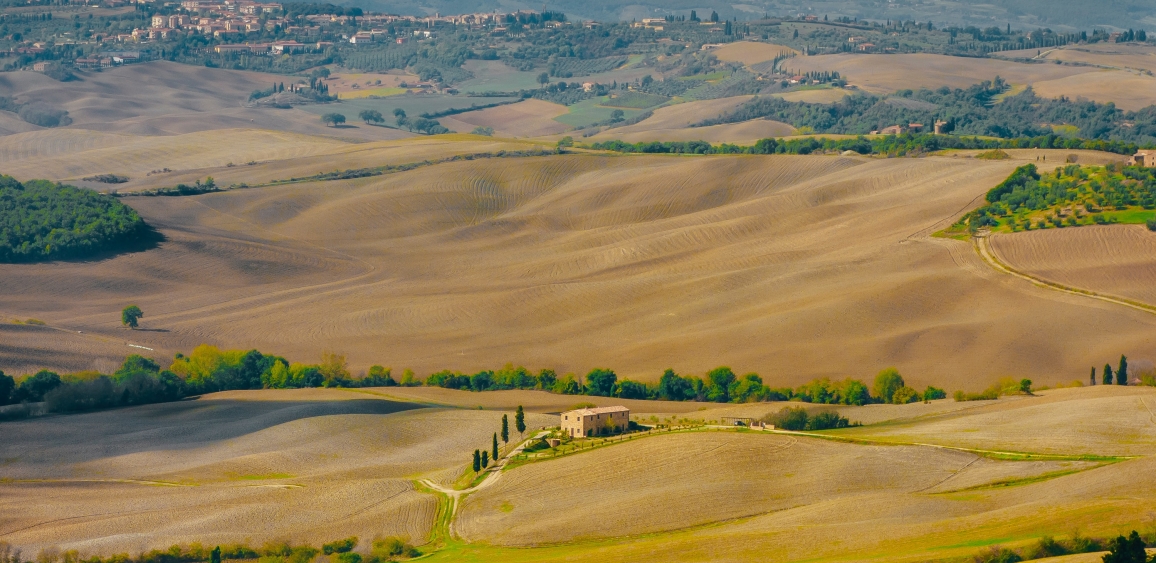Valeria Lingua, University of Florence, Iole Piscolla, Città del Vino (Cities of Wine) National Association
The current pandemic has highlighted the role that the countryside and agricultural areas play in the overall system of well-being of the city and its citizens. However, it has also activated new imaginaries of life in the countryside, projected towards an environment far from the chaos of the city and the danger of contagion.
Imaginaries that clash with the reality of the modern countryside and of those who daily live in it and carry out their entrepreneurial activities. Today’s farmers are entrepreneurs who are often university graduates, in any case informed, who do not necessarily settle in the place of production, inserted in global networks and, at the same time, strongly anchored to local identity.
Aware that the soil, the landscape and the territory they use and modify contribute to product marketing but, at the same time, require new attention from the perspective of sustainability and ecological transition.Even the work has changed and the agricultural activity is often accompanied by the receptive one, which determines strong changes in the role of women in farms, in marketing, in the conception of the tourist fruition based on slow, organic and zero kilometer experiences.
Adding to this complex scenario today are the new inhabitants, smart workers and post-pandemic country users. They are looking for places that are safe from the virus but infrastructured with digital networks and urban rank services. There is therefore a gap between those who live and work in rural districts surrounding important urban areas and those who cannot take advantage of this proximity.
The conference explores these differentiated ways of “experiencing the countryside”, presenting different aspects and populations that experience it in complex ways, times and interactions. The post-pandemic “renaissance” of country life certainly poses an important challenge for the planning of wine cities. It implies that the guidelines for quality wine districts must be in charge of managing this phenomenon.
PROGRAMME
Opening greetings:
Floriano Zambon, President Città del Vino (Cities of Wine) National Association
Stefano Stanghellini, Honorary President INU
Introduction:
“Themes and perspectives for the integrated valorization of quality wine producing areas in the post-pandemic phase”
Valeria Lingua, Associate Professor Department of Architecture at University of Florence, Regional Design Laboratory
Lectures:
“How to reconcile quality living with fine viticulture. The experience of the Municipality of Tollo”
Angelo Radica, Mayor of the municipality of Tollo
“Alto Adige. Postpandemic quality of life and enterprise”
Roberta Agosti, Director of the Tourist Board of the Province of Bolzano
“The role of wine women, new entrepreneurs in a renewed campaign”
Donatella Colombini Cinelli, President of the National Association “Le Donne del Vino” (Wine women)
“Heroic viticulture in the Alps”
Stefano Celi, President CERVIM Center for Research, Studies and Valorization for Mountain Viticulture
“Rural hillside development and the biocultural landscape. Example cases in Piedmont”
Federica Larcher, Director Centro Studi per lo Sviluppo Rurale della Collina (CSC – Study Center for the Rural Development of the Hillside), Professor Department of Agriculture, University of Turin
“The active role of agricultural entrepreneurs in the Operational Plan of the Municipality of San Gimignano”
Andrea Marrucci, Mayor of the Municipality of San Gimignano
Irina Guicciardini Strozzi, President of the Vernaccia Wine of San Gimignano Consortium
“The PUC (Municipality Urban Development Master Plan) of Carosino between valuable wine-producing areas and differentiated financing policies”
Francesco Rotondo, Professor of Urban Planning at the Department of Civil, Building and Architectural Engineering, Polytechnic University of Marche, Italy
Alessandro Zito, Engineer in charge of the Town Planning Office of the Municipality of Carosino
Moderation and conclusions:
Paolo Corbini, Director Città del Vino (Cities of Wine) National Association
Italiano

Contributions